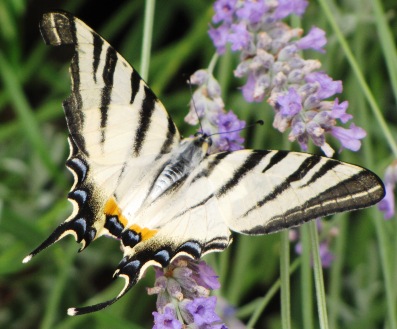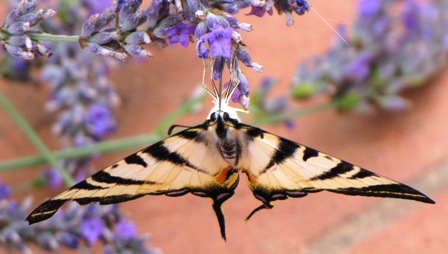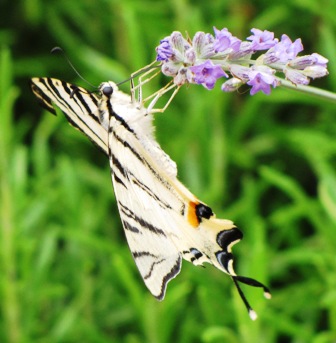Thanks to Sherlock, I was able to get my hands on a full study recently published in “Phytotherapy Research” concerning the effects of a particular herbal tea on the immune system…specifically, on natural killer (=NK) cell activity. The abstract can be seen here: http://tinyurl.com/lwxylr
Just as a reminder, NK cells are important immune system cells whose activity is reduced in multiple myeloma…in fact, this reduction is associated with advanced stages of this cancer as well as increased LDH and B2M. And studies have shown that myeloma patients with higher NK cell activity survive longer than those with lower activity.
As we can read in the abstract, the tea consisted of a mix of five herbs that have been used for centuries in Ayurvedic medicine: Withania somnifera, Glycyrrhzia [sic] glabra, Zingiber officinale, Ocimum sanctum and Elettaria cardamomum. Translated into non-Latin terms, the first above-mentioned herb is ashwagandha or Indian ginseng (coincidentally, this is at the top of my to-be-researched list, since, among other things, it is strongly antiangiogenic); the second, correctly spelled Glycyrrhiza glabra, is liquorice; then we have ginger, holy basil and cardamom. (I have posts and pages on liquorice, ginger and holy basil, by the way.)
This article discusses two independent double-blind intervention studies—Study I and Study II. Study I included 32 (generally) healthy people between the ages of 55 and 65, selected because of their low NK cell activity and a history of recurrent coughs and colds. Study II: 110 individuals, same age group, also with low NK cell activity. In both studies, roughly half the participants drank the herbal tea mix while the rest, the placebo groups, drank unfortified regular tea. All study participants had to drink three cups of tea/day for at least two months (Study II lasted longer).
Compared to the placebo groups, the herbal fortified tea groups showed much more NK cell activity. This is what we know from the abstract. Now for the full study, which is filled with, IMO, fascinating details.
The introduction provides us with a general description of NK cells: Natural killer (NK) cells are pivotal in the early innate immune responses against pathogens. […] In addition to their role in tumor cell killing, NK cells are important effectors against certain viruses, parasites and bacteria infected cells. People with diminished NK cell activity suffer from repeated viral and/or bacterial infections.
Ah, and read this: The activity of NK cells appears to be relatively sensitive to diet and the intake of specific food components. Okay, that got my full attention. A little bell started ringing in the back of my mind…hadn’t I seen this before? I stopped reading the study and did a quick online search. Sure enough, hah!, curcumin increases NK cell activity. Indeed, it can even activate these cells. Now I know WHY I don’t get infections anymore (as I did in the pre-curcumin period), even though my IgAs and IgMs are practically nonexistent; in fact, my immune system is so weak that my haematologist was surprised that I wasn’t sick all the time…ahhh, good, I like to solve puzzles…next time I see her, I will tell her about curcumin and NK cells, if she doesn’t read it here first, that is…
Back to the study now. Tea (both black and green) also apparently enhances NK cell activity. And, in fact, the tea given in the study was black tea fortified with extracts of the above-mentioned five herbs. The placebo groups also received black tea–unfortified, of course.
In Study I, after one month, NK cell activity increased a bit, but not significantly, in both groups…but after two months, there was a 60 % increase in the fortified herbal tea group. Remarkable. In Study II, after two months, the fortified herbal tea group had a 4.2 increase in NK cell activity compared to the placebo group that registered only a 2.9 increase.
In the Discussion part we have a description of the various effects of each herbal component of the fortified tea. All of the herbs are immunostimulatory (with the possible exception of cardamom).
Then we read that consumption of regular tea was correlated with a time dependent increase in NK cell activity in both studies. Although tea alone has been suggested to influence immune function further evidence from human studies is required before conclusions can be made regarding the association between the consumption of regular black tea and increased NK cell activity, although recent reports suggest that consumption of green tea can increase NK cell activity. So even regular tea, after at least two months, can increase our NK cell activity. Interesting. I am seriously considering becoming a tea drinker now…
The study concludes that drinking the herbal fortified tea enhances NK cell activity compared with the consumption of regular tea. So this might be a good way to enhance immune status in subjects with a suboptimal immune function and recurrent episodes of colds and influenza. By the way, the total amount of the five herbs contained in the fortified tea was 4.5%. Not much, when you think about it…yet it was enough to raise NK cell activity. Remarkable.
Note: this study made me wonder if a NK cell-enhancing treatment has been considered for, or even tested on, myeloma patients…unfortunately, I don’t have the time to check on that right now…oh well!
By the way, one of the many interesting titbits that can be found in this study is that our NK cell activity can actually be measured…I didn’t know that. I wonder what mine is! Hmmm…
 and there was the most extraordinary butterfly I have ever seen, certainly in Italy. I dashed inside to grab my camera and spent the next 15-20 minutes (or more) alternately taking photographs and standing still to admire this gorgeous insect.
and there was the most extraordinary butterfly I have ever seen, certainly in Italy. I dashed inside to grab my camera and spent the next 15-20 minutes (or more) alternately taking photographs and standing still to admire this gorgeous insect.  known as the paw paw butterfly, since the caterpillar likes to feed on young and tender paw paw plants (coincidentally, paw paw is used as an alternative cancer treatment, see
known as the paw paw butterfly, since the caterpillar likes to feed on young and tender paw paw plants (coincidentally, paw paw is used as an alternative cancer treatment, see  My friend had a slight injury to her left wing but otherwise seemed fine. She certainly drank an enormous amount of nectar from my lavender blooms, using her proboscis, or long flexible tongue (see photos). After taking about a million photographs, I went to call Stefano and my parents. Stefano arrived with his super duper camera and took several photos, too. When it began raining, though, we had to go back into the house.
My friend had a slight injury to her left wing but otherwise seemed fine. She certainly drank an enormous amount of nectar from my lavender blooms, using her proboscis, or long flexible tongue (see photos). After taking about a million photographs, I went to call Stefano and my parents. Stefano arrived with his super duper camera and took several photos, too. When it began raining, though, we had to go back into the house.  And the beneficial effects of laughter are apparently long-lasting–up to 24 hours after watching a funny movie. 24 hours!, wowie. This article has given me an incentive to find and post more funny stuff and build up my
And the beneficial effects of laughter are apparently long-lasting–up to 24 hours after watching a funny movie. 24 hours!, wowie. This article has given me an incentive to find and post more funny stuff and build up my